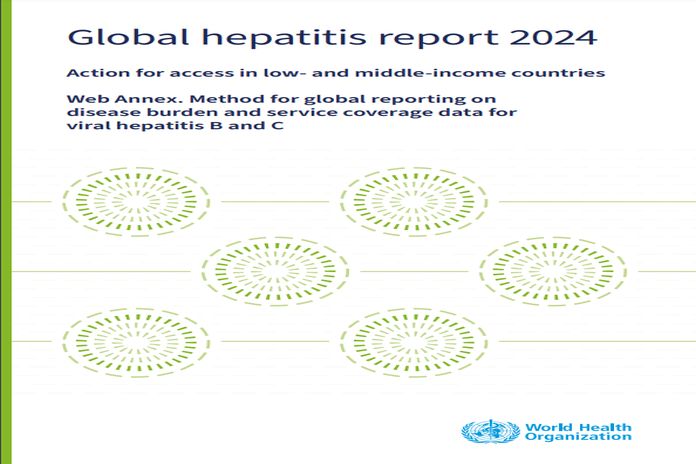- Across all regions, only 13% of people living with chronic hepatitis B infection had been diagnosed and approximately 3% (7 million) had received antiviral therapy at the end of 2022. Regarding hepatitis C, 36% had been diagnosed and 20% (12.5 million) had received curative treatment.
- These results fall well below the global targets to treat 80% of people living with chronic hepatitis B and hepatitis C by 2030. However, they do indicate slight but consistent improvement in diagnosis and treatment coverage since the last reported estimates in 2019. Specifically, hepatitis B diagnosis increased from 10% to 13% and treatment from 2% to 3%, and hepatitis C diagnosis from 21% to 36% and treatment from 13% to 20%.
GENEVA, Switzerland, (OVERVIEW) – This is the first consolidated WHO report on viral hepatitis epidemiology, service coverage and product access, with improved data for action. This report presents the latest estimates on the disease burden and the coverage of essential viral hepatitis services from 187 countries across the world.
The report also updates progress made since 2019 in improving access to health products for both hepatitis B and C in low- and middle-income countries, with information from 38 countries that together comprise nearly 80 percent of global viral hepatitis infections and deaths.
The report provides a regional perspective, analysing the barriers and opportunities for countries in each of the 6 WHO regions to expand access to health products for viral hepatitis. It presents actions for countries and stakeholders to accelerate the scaling up of effective viral hepatitis interventions within a public health approach.
Method for global reporting on disease burden and service coverage data for viral hepatitis B and C, 2022 (PDF, 260 KB)
Recommendations for accelerating hepatitis elimination
The report outlines a series of actions to advance a public health approach to viral hepatitis, designed to accelerate progress towards ending the epidemic by 2030. They include:
- expanding access to testing and diagnostics;
- shifting from policies to implementation for equitable treatment;
- strengthening primary care prevention efforts;
- simplifying service delivery, optimizing product regulation and supply;
- developing investment cases in priority countries;
- mobilizing innovative financing;
- using improved data for action; and
- engaging affected communities and civil society and advancing research for improved diagnostics and potential cures for hepatitis B.
Funding remains a challenge
Funding for viral hepatitis both at a global level or within dedicated country health budgets, is not sufficient to meet the needs. This arises from a combination of factors, including limited awareness of cost-saving interventions and tools, as well as competing priorities in global health agendas. This report seeks to shed light on strategies for countries to address these inequities and access the tools at the most affordable prices available.






